October 2025
Churchill update
Grass cutting, soil aeration and fencing works underway at Churchill to the south of the site for future grassland creation and to prepare for upcoming tree planting planned to start in winter 2025/26.
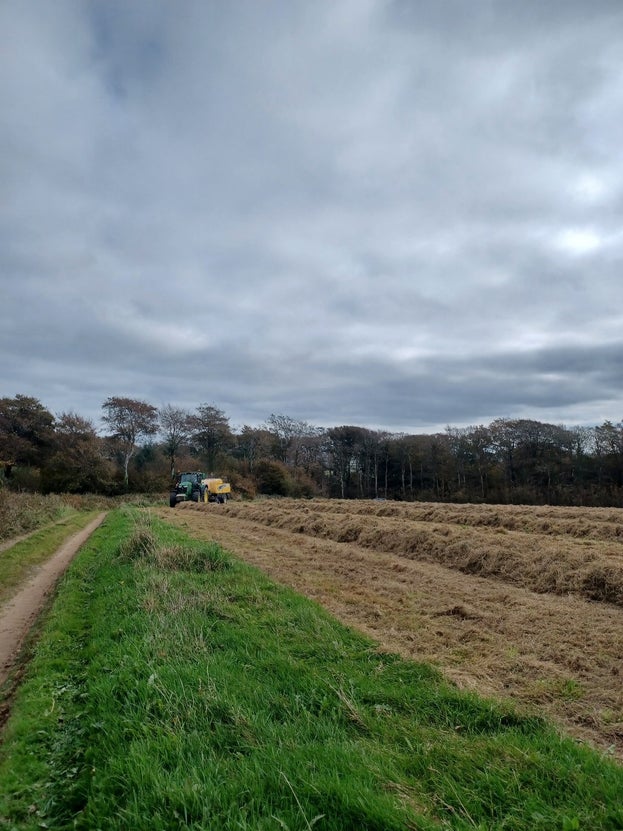
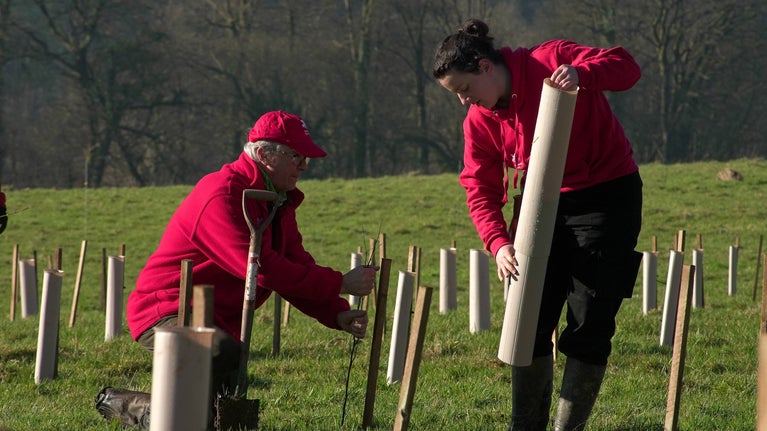
At Arlington we are working to create a wilder, wetter, woodier and more resilient estate that benefits both people and nature. Inspired by Rosalie Chichester’s wishes over 70 years ago, find out how we are working to achieve this.
By 2030, we’ll have planted around 300,000 trees across the Arlington Estate, creating a rich mosaic of habitats, tackling the climate crisis and extending green spaces for everyone to enjoy.
By planting a diverse mix of trees alongside our ancient woodlands - including sessile oak, beech, wild cherry, hazel, rare devon whitebeams and willow - we’re expanding and connecting habitats, supporting temperate rainforest restoration and enriching areas with blossom and nectar. Resulting in a resilient, diverse landscape for generations to come.
This work forms part of the National Trust’s wider ambition to plant 20 million trees by 2030 and restore 25,000 hectares of priority habitat across the UK.
The Landscape Recovery Scheme (LRS) is a DEFRA-funded project planning a 20-year habitat restoration across 1,400 hectares, creating a wildlife-friendly corridor linking the Arlington Estate to the West Exmoor Coast. Working in partnership with 19 land managers, the scheme will reconnect fragmented landscapes, restore natural processes, and create diverse habitats.
Opportunities from this project include woodland and river restoration, the creation of species-rich grasslands, regenerative farming, and species reintroduction, while also supporting biodiversity, climate resilience, and soil health. The scheme also presents the opportunity to enhance historic parkland at Arlington and reverse the decline of Sites of Special Scientific Interest (SSSIs), shaping a healthier, wilder, and more connected landscape for the future.
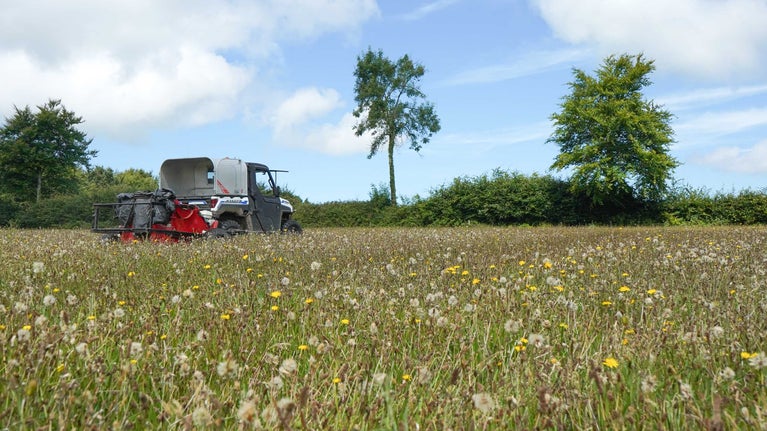
At Churchill, on the western edge of the estate, we are restoring natural processes to help improve the biodiversity of the site. The work will include grassland diversification, wetland creation, stream reconnection, new wooded habitats and mown permissive paths. Detailed planning has been undertaken across the site over the past two years to inform the future.
The site will eventually see over 80k trees planted in a mixed planting styles including closed canopy and open woodland, scattered trees, natural regeneration, scrubland and wood pasture. See the timeline below for project updates as they take place.
The aim of the Arlington lake reimagined project is to install a fish and eel pass, re-opening over six kilometres of the River Yeo to endangered Atlantic salmon and European eel for the first time in nearly 200 years, allowing them to reach historic spawning grounds. A more natural river channel will also be created within the silted lake basin, helping to stabilise sediment, improve aquatic habitats, and reduce downstream pollution.
The project also aims to protect the rare lichen-rich wet woodland in the northern lake basin, designated as a Site of Special Scientific Interest (SSSI), and will include monitoring and mitigation to maintain the delicate conditions required by these internationally important species. Existing wildlife habitats will be enhanced and new habitat created with an ambition to reintroduce water voles.

The outdoor activity hub proposed for the site at North Woolley will provide an accessible and inclusive outdoor space for local communities and visitor alike. Offering a chance to enjoy and engage with nature across a larger part of the Arlington Estate - all free to access.
The hub will feature a 1.2 km accessible trail weaving through meadows, orchards, wetlands, and woodlands, showcasing the conservation work taking place across the estate. Visitors will be able to explore a nature-inspired play area, a skills zone for wheeled activities, and quiet spots to sit and enjoy the views. For those seeking adventure, the hub will connect to the historic carriage driveway and wider estate with 20 miles of existing paths and more routes planned for the future.
Essential facilities on site will include a car park, bus stop, toilets, a welcome and information area, food and drink options, picnic spots, and community spaces, making the hub a convenient and inviting destination for both locals and visitors.
Across North Devon, many natural wetlands have been lost due to land drainage and river changes. This has harmed wildlife, increased flooding, and reduced water quality. Our project aims to bring these vital habitats back to life.
Working in areas like Arlington Court, West Exmoor, Hartland, and Woolacombe, we are removing man-made drainage features and working with natural processes to allow the land to function in a more natural way. By creating ponds, wet woodlands, and reconnecting rivers with their floodplains, we’ll help wildlife return and make the land more resilient to floods and droughts.
This work will support species like otters, kingfishers, and dragonflies, while also helping farmland birds and bats. Click here to find out more about our Riverlands work in North Devon.
We are working to create new species rich grassland across 70 miles of the North Devon countryside to help combat the 97% loss of these habitats over the last century.
Through reintroduce species such as Yellow Rattle, Knapweed, Birdsfoot Trefoil, Lady’s Bedstraw and Yarrow we are creating lowland meadow priority habitat. In turn this will provide a food source for Common Blue Butterflies and Red Tail Bumble Bees, Greater and Lesser Horseshoe Bats and Short Eared Owls.
Alongside the benefits for nature and wildlife, the project will create open, accessible and nature-rich places for everyone to enjoy. So far at Arlington, we have created over 10ha of new species rich grasslands since 2022.
October 2025
Grass cutting, soil aeration and fencing works underway at Churchill to the south of the site for future grassland creation and to prepare for upcoming tree planting planned to start in winter 2025/26.

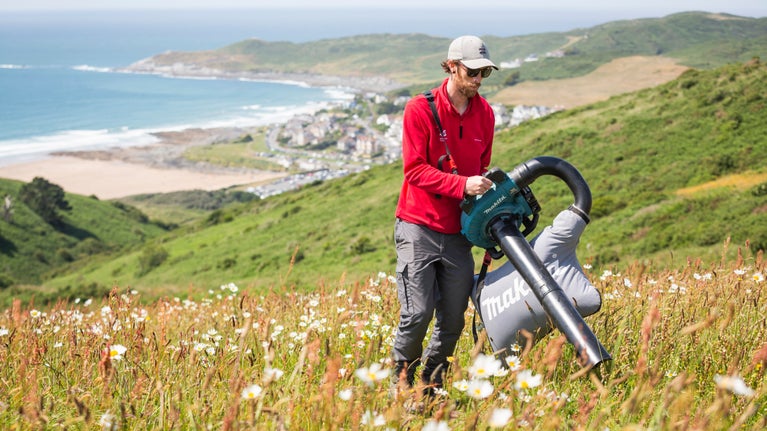
From £8 a month, you can help renew a nature super site. These sites, spread across the UK including North Devon, have been specially selected for their potential to restore nature across landscapes. Adopting a plot in North Devon will help to restore 12,000 acres of habitat for a diverse range of nature and wildlife. From planting trees to reintroducing native species including pine martens, red squirrels and water voles.
Discover more about the work being done to care for the collection of over 5,000 items at Arlington Court, including the coaches of the National Trust Carriage Museum.

Find out more about the picturesque pleasure grounds which surround Arlington and how they went from picture perfect to reclaimed by nature, and back again.
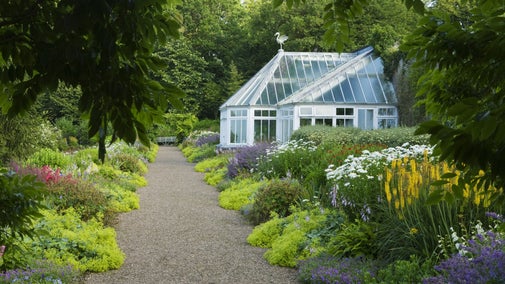
From the ever-changing flowers of the formal Victorian Garden to picture-perfect pleasure grounds, the garden at Arlington Court is beautiful whatever the weather. Step into the hidden walled kitchen garden for variety through the seasons.

The house at Arlington Court is the work of generations of the Chichester family. Discover how each heir left their mark on the building you see today.

Discover the Arlington Estate with 2,600 acres to explore and over 25 miles of paths, enjoy walks, scenic runs and exciting bike rides.
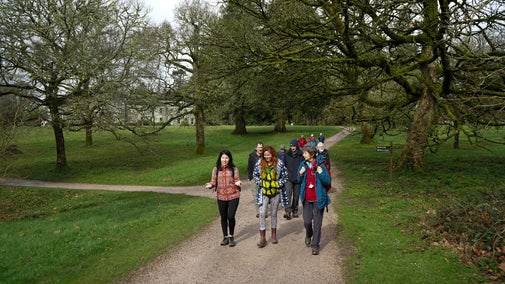
We believe that nature, beauty and history are for everyone. That’s why we’re supporting wildlife, protecting historic sites and more. Find out about our work.

Read about our strategy, which focuses on restoring nature, ending unequal access and inspiring more people.
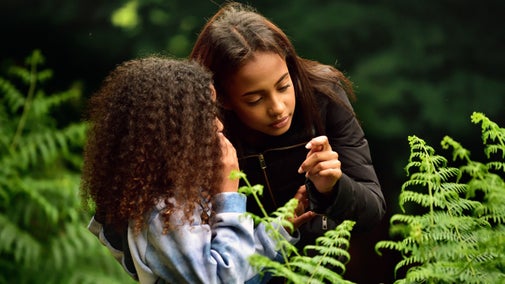
Newly sown wildflower grassland will connect nature habitats in the North Devon countryside. The project will see grassland cover 1,275 hectares over pockets of land across 70 miles by 2030, from Torridge to west Exmoor.